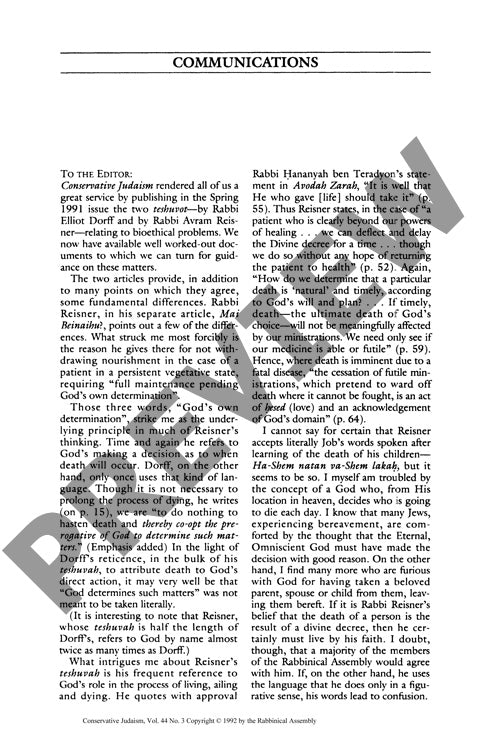Communications
Couldn't load pickup availability
A fundamental theological divide shapes how Conservative Judaism approaches end-of-life care: whether death occurs by divine decree or through a more complex interplay of natural and human factors. Two influential *teshuvot* (rabbinic responsa) by Rabbis Elliot Dorff and Avram Reisner reveal contrasting frameworks for medical decision-making, with far-reaching implications for pastoral care. Through comparative textual analysis of rabbinic interpretations, Rabbi Arnold Lasker identifies how Reisner's frequent attribution of death to direct divine decree stands in marked contrast to Dorff's more measured theological language. Reisner advocates a hierarchical understanding that distinguishes between "natural" deaths of old age, deaths by disease or disaster, and deaths by human violence—while viewing medical intervention as God's healing through human agency. Dorff instead proposes a partnership model where divine and human actors jointly participate in life-and-death decisions without clearly defined boundaries. In their responses, Reisner clarifies his position as believing in divine creation with built-in natural processes rather than specific individual decrees, while Dorff emphasizes how Jewish tradition deliberately maintains ambiguity regarding divine-human collaboration. This scholarly exchange illuminates the ongoing challenge of integrating traditional Jewish theology with contemporary bioethical practice in Conservative Judaism.

More Information
-
Physical Description
-
Publication Information
Published 1992
ISBN
-
Publication Credits

